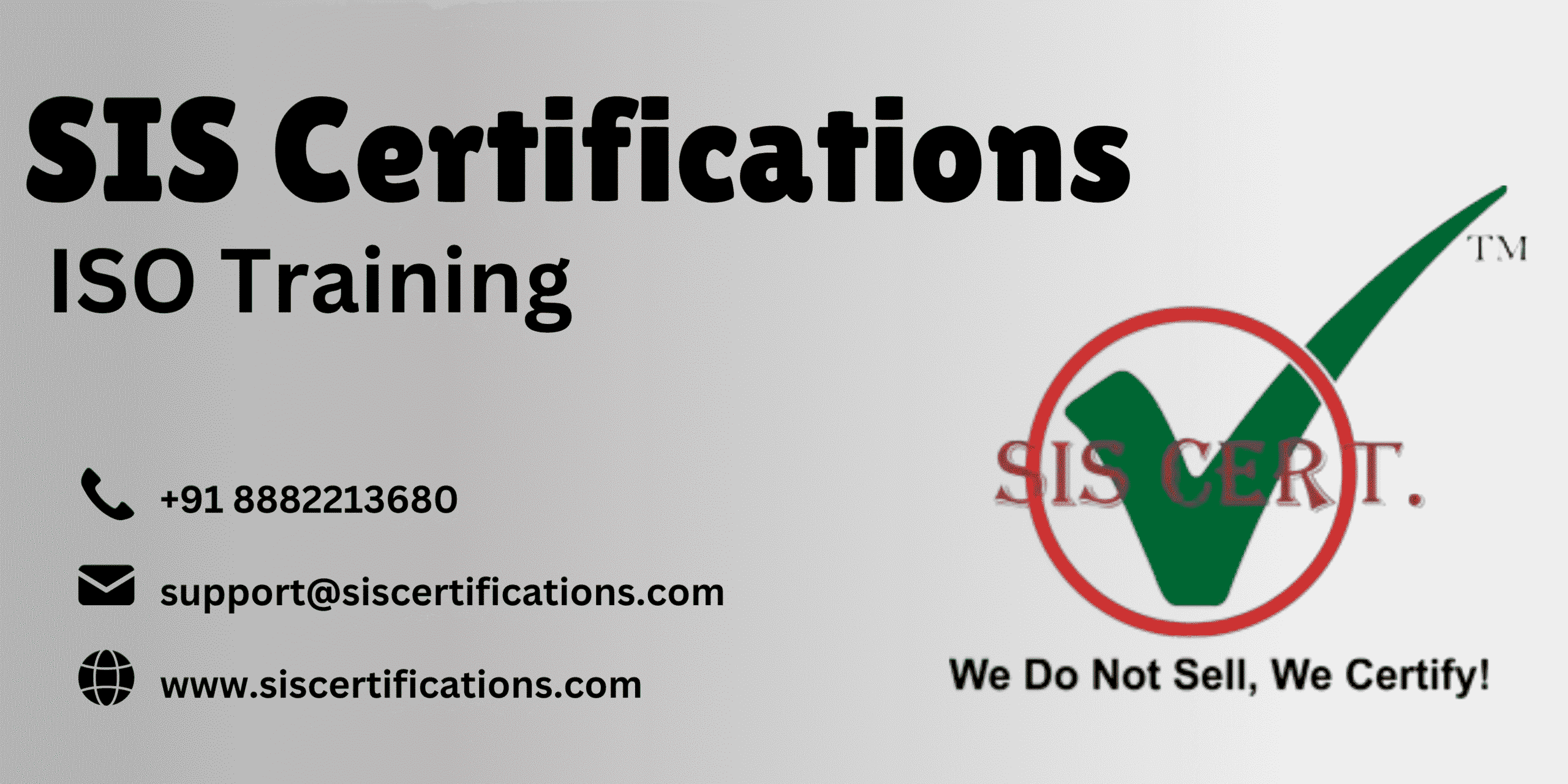ISO Training: Your Pathway to Global Standards and Excellence
Overview of ISO Training
ISO training equips individuals and organizations with the expertise to understand, implement, and audit ISO standards—globally recognized frameworks that ensure consistency, safety, and quality across industries. These standards, developed by the International Organization for Standardization, cover diverse areas such as quality management, information security, facility management, and occupational health and safety. ISO training programs are designed to teach participants how to align processes with these standards, fostering compliance and operational excellence.
Available in formats like online courses, in-person workshops, and blended learning, ISO training caters to various professionals, including managers, auditors, consultants, and employees. Training levels range from foundational courses for beginners to advanced lead auditor programs for experienced professionals. By completing ISO training, participants gain practical skills to improve processes, meet regulatory requirements, and enhance customer trust. Each ISO standard has a tailored training program, addressing specific industry needs and challenges, making ISO training a versatile tool for professional and organizational growth.
Advantages of ISO Training
Investing in ISO training yields significant benefits for businesses and individuals alike. Here are the key advantages:
- Global Recognition: ISO standards are universally accepted, and ISO training ensures organizations meet these benchmarks, enhancing credibility and opening doors to international markets.
- Process Optimization: ISO training teaches participants how to streamline operations, reduce inefficiencies, and improve resource utilization, leading to cost savings and higher productivity.
- Regulatory Compliance: Understanding ISO standards through training helps organizations avoid penalties and maintain compliance with industry regulations.
- Risk Mitigation: Standards like ISO 27001 and ISO 45001 focus on managing risks in information security and workplace safety. ISO training provides strategies to identify and address potential risks effectively.
- Career Growth: For individuals, ISO training enhances professional credentials, qualifying them for roles like compliance officers, auditors, or consultants in high-demand industries.
- Customer Confidence: By aligning with ISO standards, organizations demonstrate a commitment to quality and reliability, boosting customer satisfaction and loyalty.
- Sustainability and Innovation: ISO training fosters a culture of continuous improvement, encouraging organizations to innovate and adopt sustainable practices.
These benefits make ISO training a strategic investment for long-term success, whether you’re aiming to elevate your career or transform your organization.
ISO 9001 Training
ISO 9001 is the world’s most widely adopted standard for quality management systems (QMS), focusing on delivering consistent quality in products and services. ISO 9001 training equips professionals with the skills to implement, manage, and audit a QMS that meets ISO 9001 requirements.
The training covers critical areas such as customer focus, process improvement, and leadership engagement. Participants learn how to document processes, monitor performance, and drive continuous improvement. ISO 9001 training is essential for industries like manufacturing, healthcare, and retail, where quality is a key differentiator. Training programs are structured into:
- Foundation Courses: Provide an introduction to ISO 9001 principles, structure, and requirements.
- Internal Auditor Training: Focuses on conducting internal audits to ensure QMS compliance.
- Lead Auditor Training: Prepares professionals to lead certification audits for ISO 9001.
By completing ISO 9001 training, participants can help organizations reduce defects, enhance customer satisfaction, and achieve operational excellence.
Get ISO Training
Starting your ISO training journey is straightforward and rewarding. Follow these steps to get started:
- Define Your Goals: Identify which ISO standard aligns with your organization’s objectives or career aspirations. For instance, ISO 9001 suits quality-focused roles, while ISO 45001 is ideal for safety professionals.
- Research Accredited Providers: Choose a reputable training provider accredited by recognized certification bodies. This ensures the course is credible and aligned with ISO standards.
- Select a Suitable Format: Decide between online, in-person, or hybrid training based on your schedule and learning preferences. Online courses offer flexibility, while in-person sessions provide interactive experiences.
- Enroll in the Right Course: Pick a course level that matches your expertise, such as foundation for beginners or lead auditor for advanced learners. Most providers offer flexible schedules.
- Implement Your Skills: Apply the knowledge gained to improve organizational processes or pursue certification audits to validate compliance.
ISO training is a proactive step toward achieving excellence. Begin today to unlock new opportunities and stay competitive.
ISO 41001 Training
ISO 41001 is the international standard for facility management, designed to optimize facility operations and align them with organizational goals. ISO 41001 training provides professionals with the tools to enhance facility performance, reduce costs, and improve workplace environments.
The training covers facility planning, maintenance strategies, and sustainability practices. It is ideal for facility managers, property developers, and consultants in sectors like real estate, education, and hospitality. ISO 41001 training programs include:
- Foundation Courses: Introduce the principles and requirements of ISO 41001.
- Implementation Training: Guides participants on integrating ISO 41001 into facility management systems.
- Auditor Training: Prepares professionals to audit compliance with ISO 41001 standards.
By completing ISO 41001 training, participants can create efficient, sustainable, and user-friendly facilities, enhancing organizational productivity and reputation.
ISO 27001 Training
ISO 27001 is the global standard for information security management systems (ISMS), helping organizations protect sensitive data and manage cybersecurity risks. ISO 27001 training teaches participants how to implement, maintain, and audit an ISMS to ensure data security and compliance.
The training covers risk assessment, security controls, and incident response strategies. It is critical for IT professionals, security managers, and organizations in industries like finance, healthcare, and technology. ISO 27001 training programs include:
- Foundation Courses: Provide an overview of ISO 27001 requirements and principles.
- Internal Auditor Training: Focuses on auditing ISMS to ensure compliance.
- Lead Auditor Training: Prepares professionals to lead ISO 27001 certification audits.
With ISO 27001 training, organizations can safeguard data, prevent breaches, and build trust with stakeholders.
ISO 45001 Training
ISO 45001 is the international standard for occupational health and safety management systems, aimed at reducing workplace incidents and promoting employee well-being. ISO 45001 training equips professionals with the skills to identify hazards, manage risks, and ensure compliance with safety regulations.
The training covers risk assessment, safety policies, and employee engagement. It is ideal for safety officers, HR professionals, and managers in high-risk industries like construction, manufacturing, and energy. ISO 45001 training programs include:
- Foundation Courses: Introduce ISO 45001 principles and requirements.
- Implementation Training: Guides participants on integrating ISO 45001 into safety systems.
- Auditor Training: Prepares professionals to audit compliance with ISO 45001.
ISO 45001 training fosters a safety-first culture, reducing workplace injuries and enhancing employee morale.
FAQs
What is the purpose of ISO training?
ISO training educates individuals and organizations on implementing and maintaining ISO standards to ensure compliance, improve processes, and enhance credibility.
Who can benefit from ISO training?
Professionals in quality, safety, security, or facility management, as well as organizations seeking ISO certification, can benefit from ISO training.
How long does ISO training take?
Course duration varies: foundation courses may take 1-2 days, while lead auditor training can last 4-5 days.
Can I take ISO training online?
Yes, many providers offer flexible online ISO training courses to suit busy schedules.
What is the cost of ISO training?
Costs depend on the provider, course type, and format. Check reputable training providers’ websites for accurate pricing.
Do I need prior knowledge for ISO training?
Foundation courses require no prior knowledge, but advanced courses may recommend familiarity with the standard.
Conclusion
ISO training is a transformative step toward achieving global standards in quality, safety, security, and facility management. By mastering standards like ISO 9001, ISO 41001, ISO 27001, and ISO 45001, professionals and organizations can enhance compliance, optimize processes, and gain a competitive edge. Whether you’re seeking career advancement or aiming to elevate your organization’s performance, ISO training provides the knowledge and tools to succeed. Start your ISO training journey today to drive excellence and build a sustainable future.














Post Comment